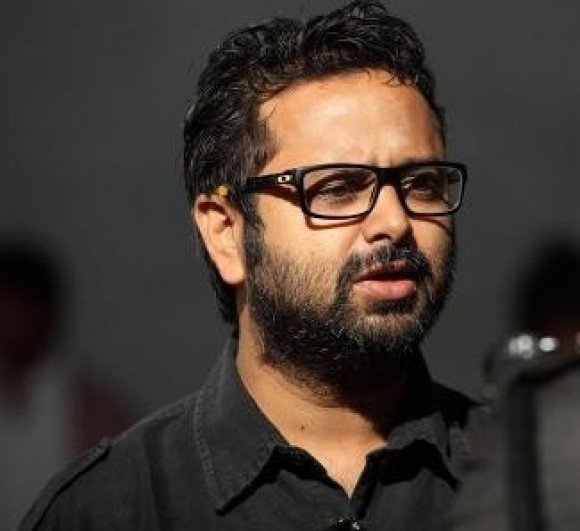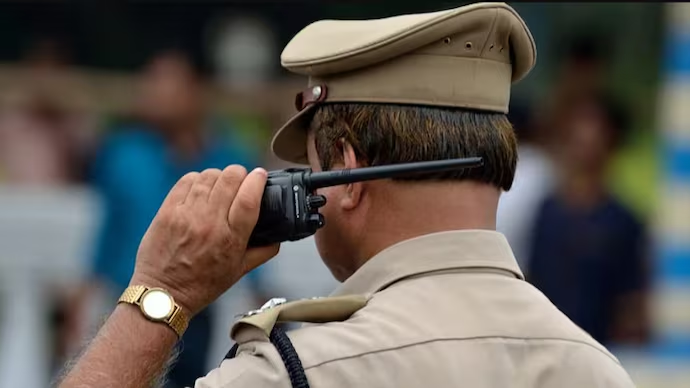Filmworld
Nobody knows what patriotism is: Filmmaker Nikkhil Advani

New Delhi, Nov 17: His film "Airlift" brought alive the story of the Indian governments 1990 evacuation of Indians forced out of Kuwait by the first Gulf War; his TV show "P.O.W: Bandi Yuddh Ke" narrates the struggle of war heroes and the emotional upheaval their families go through. Filmmaker Nikkhil Advani says such stories of national pride need to be told to the youth at a time when "nationalism is being flung like a two rupee coin".
"Nationalism is something that right now we are flinging like a Rs 2 coin. People are expressing, ‘I am patriotic, I have national pride'. But nobody knows what patriotism is," Advani said in an interview to IANS here as he dwelt on the need of storytellers to share tales of patriotism.
"Is patriotism about a soldier who stands at a post for 12 hours a day holding a gun, sitting upright. There's nobody to see him, nobody to check him. But he stands. Is that patriotism or is it two women who choose not to move on with their lives hoping that their husbands will come back?
"As a generation today, we need to know these stories. A filmmaker like Rajkumar Hirani, when he was going to make ‘Lage Raho Munna Bhai', told me he was doing a film around Gandhi. I told him, ‘Who will watch it?' He said, ‘That's why I'm making this film'. It was a hit.
"The basis of ‘Airlift' was that every dinner party conversation turns out to be about ‘What has our country done for us? Our point through the film was -- our country flew down so many people and they didn't advertise. It needs to be told. These stories should not be forgotten and we need to keep reminding the youth of it," added the filmmaker, who began his journey as a feature film director with the romantic hit "Kal Ho Naa Ho".
With Star Plus' "P.O.W: Bandi Yuddh Ke" -- an Indian adaptation of the acclaimed Israeli series "Hatufim" by Gideon Raff -- Advani tells a story that revolves around the return of two soldiers to their interrupted family lives after 17 years, giving a mix of a family drama and thriller.
"When I saw ‘Prisoners of War', I realised that the real prisoners of war that Gideon Raff was talking about were the families and the wives and the people who get left behind. They are in the same prison... Not in a physical prison, but they are in a prison every day, imprisoned by hope and their future is imprisoned by their past.
"And that, I feel, is a universal emotion." This he has attempted to convey with a cinematic vision.
"There are silences, there's great music, there are songs, drama, action, thrill, suspense, and there is an aesthetic scale to the production that you will see in every frame," said Advani, who hates to call the TV space a "small screen".
"It's an injustice. It's not a small screen. We are in the time of Reliance Jio. TV is not just about 21 inches any more. I think borders between what was considered to be large screen, small screen and ultra small screen have just vanished.
"If anyone has an interesting story to tell, they should. And the advantage which I didn't have when I started in the industry around 23 years ago is that I couldn't have made a film on an iPhone. My daughter is 10 years old and she is already making films on her phone."
The filmmaker, who calls himself a ‘tantrum-maker' on the set for the perfection he demands, says he banned the use of the phrase "TV pe aise hota hai" while making the show.
"I told the team ‘Don't tell me this as we won't be able to move forward'. It's just that this story deserves a certain scale and format and so we should do it."

24 minutes ago
US air strikes on Yemen's fuel port kill 80

26 minutes ago
US State Department advisory warns citizens against travelling to B'desh citing security threats

27 minutes ago
Trump says US 'going to take a pass' on Ukraine peace talks if parties make it difficult

30 minutes ago
'It's my job to get these killers and thugs out of here,' Trump says as Venezuelans seek upturn of their deportation

41 minutes ago
US diplomat arrives in Tokyo, eyes closer ties to counter China

43 minutes ago
Mother of four elopes with daughter's father-in-law; husband files complaint.

1 hour ago
Did not pay ₹200 for a puppy; son kills elderly mother with a hammer in Chhattisgarh.

1 hour ago
First Malayalam film to enter the 300 crore club; Mohanlal expresses gratitude.

1 hour ago
Whistleblower petitions CM Vijayan against top aide Abraham now facing CBI probe

1 hour ago
The central government has banned 35 types of allopathic medicines, including those used for diabetes and heart ailments.

1 hour ago
Hectic preparations underway to welcome US Vice President JD Vance in Jaipur

1 hour ago
Students appearing for the exam were asked to remove their sacred threads and wristbands; police have registered a case.

3 hours ago
Tamannaah Bhatia says change in cinema will always come from an individual, and not collective effort










